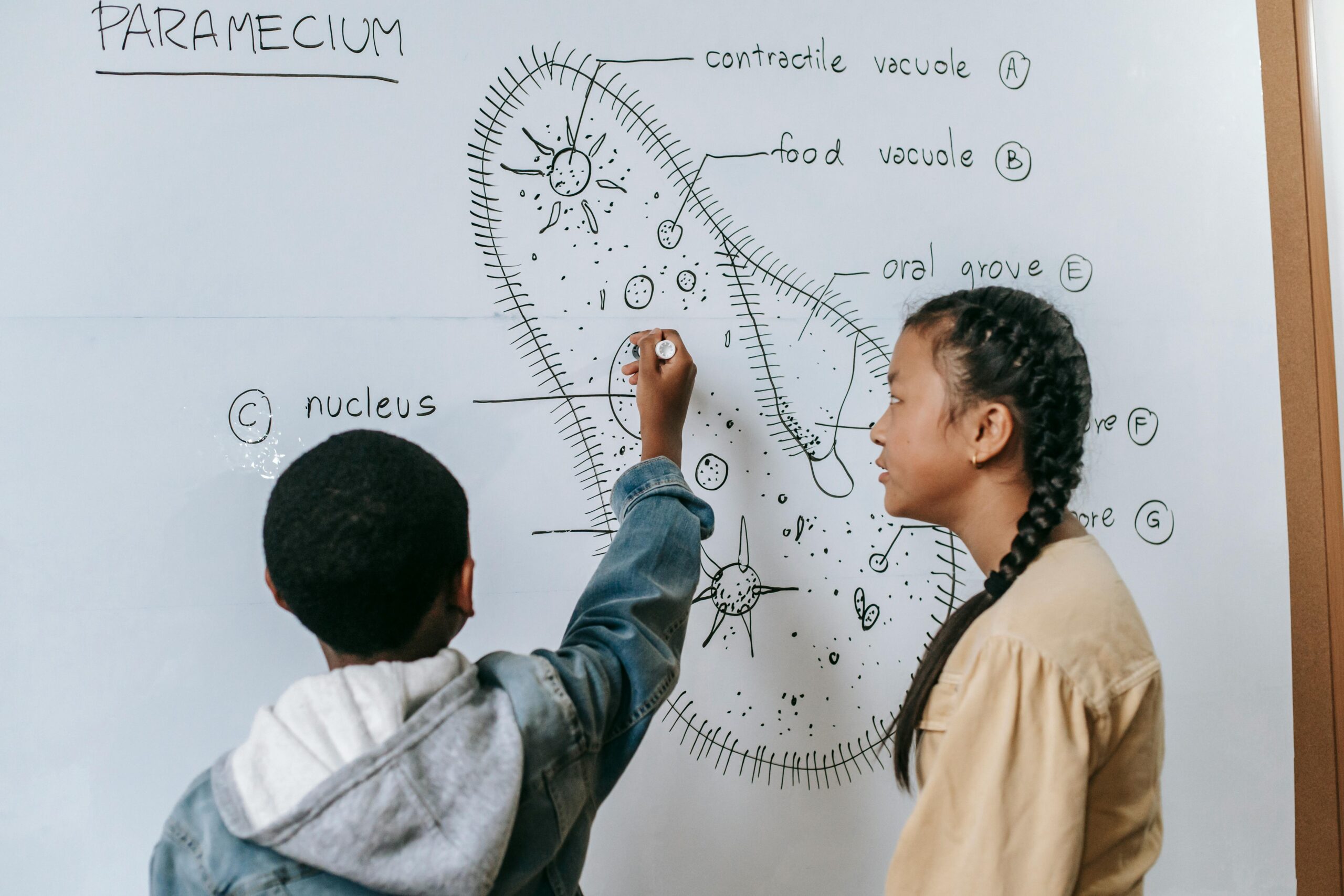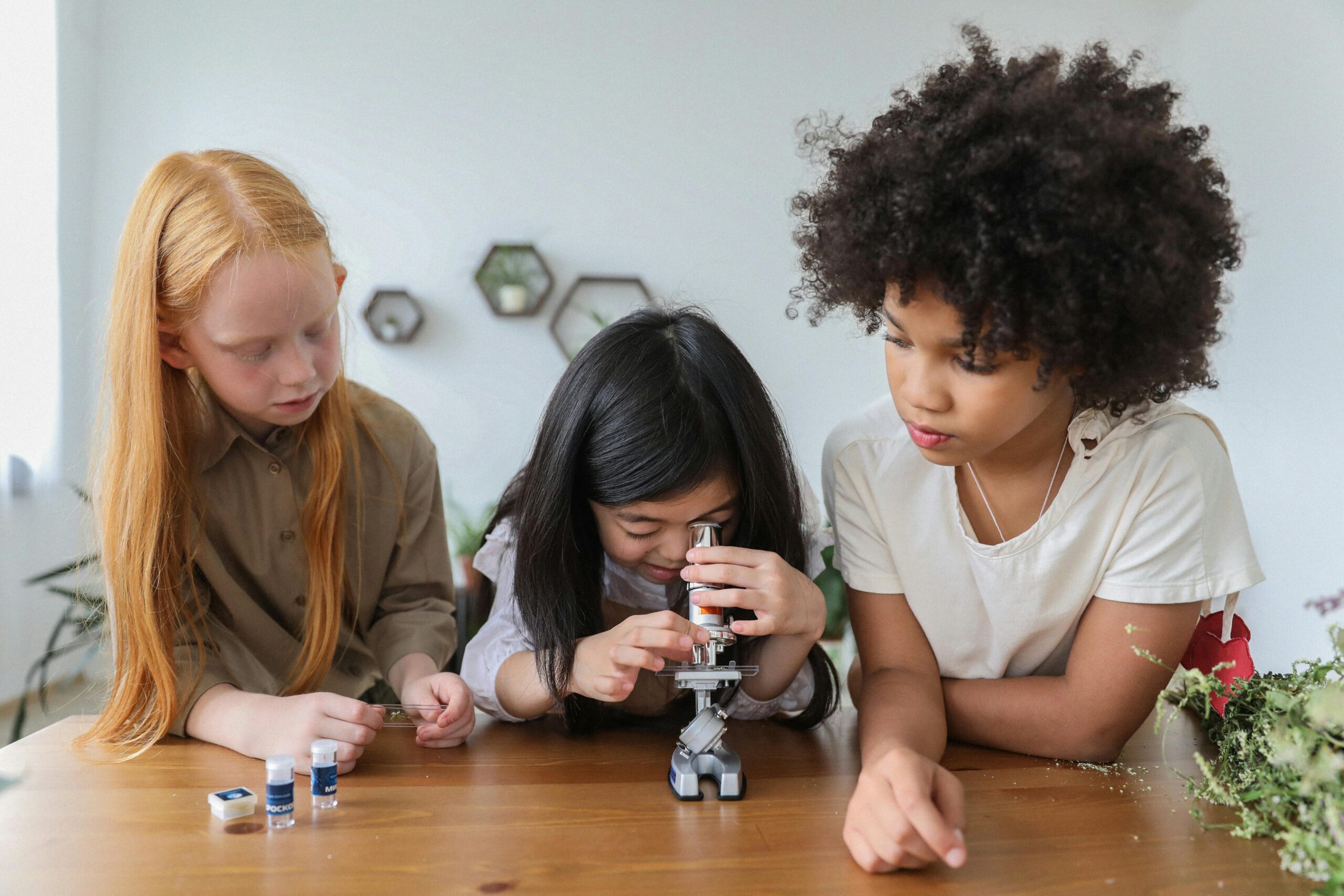Understanding the Benefits of Science Competitions
Science competitions can be a fantastic way to enrich your child’s education. They offer unique opportunities for students to dive deeper into scientific subjects. But what are the real benefits? Let’s explore why you might want to encourage your child to participate in science competitions in Ontario.
Boosting Academic Skills
Science competitions push students to go beyond what they learn in the classroom. They often require research, experimentation, and presentation skills. This not only deepens their understanding but also enhances their overall academic abilities. By preparing for these competitions, your child will learn how to tackle complex problems, analyze data, and think critically. These are skills that will serve them well throughout their education.
Moreover, science competitions often involve projects that require hands-on learning. This type of active engagement helps students retain information better than passive learning methods. When your child is excited about a project, they’re more likely to invest time and effort into it. This leads to a deeper and more meaningful learning experience. Plus, the process of preparing for a competition can make learning feel more like an adventure than a chore.
Building Confidence and Resilience
Participating in science competitions can significantly boost your child’s confidence. When they see their hard work paying off, it gives them a sense of achievement. Even if they don’t win, the experience of presenting their work and receiving feedback can be incredibly empowering. This can be especially important for children who may struggle with self-esteem. Knowing they can tackle challenging projects and present their ideas can be a real confidence booster.
Resilience is another key benefit. Competitions often come with challenges and setbacks. Maybe an experiment didn’t go as planned or a project took longer than expected. These obstacles teach valuable lessons about perseverance and problem-solving. Your child will learn that it’s okay to fail and that persistence often leads to success. These are crucial life skills that will help them in all areas of life, not just academics.
Encouraging a Passion for Science
Science competitions can ignite a passion for science in your child. The thrill of discovery, the satisfaction of solving a problem, and the joy of presenting their findings can be incredibly motivating. When children find subjects that excite them, they’re more likely to pursue those interests further. This can lead to a lifelong love of learning and curiosity.
Moreover, competitions expose students to a wider range of scientific fields. Your child might discover an interest in a specific area of science they hadn’t considered before. This exposure can help guide their future educational and career choices. It’s a wonderful way for them to explore different paths and find out what truly excites them.
Enhancing Communication Skills
Science competitions often require students to present their findings to judges and peers. This helps them develop strong communication skills. They’ll learn how to explain complex ideas in a clear and engaging way. This is a valuable skill that will benefit them in many areas of life, from school presentations to future job interviews.
Additionally, these competitions often involve teamwork. Your child will learn how to collaborate with others, share ideas, and work together towards a common goal. These experiences can enhance their social skills and help them build strong relationships. The ability to communicate effectively and work well with others is crucial for success in any field.
Gaining Recognition and Opportunities
Participating in science competitions can open doors to many opportunities. Success in these competitions can lead to scholarships, internships, and even career opportunities. It also looks great on college applications. Admissions committees recognize the dedication and hard work required to excel in these competitions. They know that students who participate in science competitions are motivated, curious, and capable of tackling challenging problems.
Moreover, the recognition your child receives can be incredibly rewarding. It’s a validation of their hard work and talent. This recognition can boost their confidence and inspire them to continue pursuing their interests in science. It shows them that their efforts are valued and that they have the potential to achieve great things.
Connecting with Like-Minded Peers
Science competitions provide a platform for your child to meet other students who share their interests. This can be a wonderful opportunity for them to make friends and build a support network. They can exchange ideas, learn from each other, and collaborate on projects. These connections can be incredibly valuable, both academically and personally.
Meeting like-minded peers can also provide inspiration and motivation. Seeing what other students are working on and hearing about their experiences can spark new ideas and encourage your child to push their boundaries. It’s a great way for them to see what’s possible and to strive for excellence.
Preparing for Future Careers
Science competitions can provide a glimpse into potential career paths. By working on projects and solving real-world problems, your child can get a sense of what a career in science might be like. This hands-on experience is invaluable and can help them make informed decisions about their future.
Furthermore, many science competitions offer networking opportunities with professionals in the field. Your child might have the chance to meet scientists, engineers, and other experts. These connections can provide valuable insights and guidance, helping them navigate their educational and career paths.
Encouraging Lifelong Learning
Participating in science competitions fosters a love of learning. It encourages your child to ask questions, seek answers, and explore new ideas. This mindset of curiosity and exploration is incredibly valuable. It will serve them well throughout their life, both in their personal and professional endeavors.
Science competitions teach that learning is a journey, not a destination. They show that there’s always more to discover and understand. By participating in these competitions, your child will develop a lifelong love of learning and a passion for discovery. This is one of the greatest gifts you can give them.

Selecting the Right Science Competition for Your Child
Choosing the right science competition for your child can feel like navigating a maze. With so many options available, how do you decide which one is the best fit? Here’s a guide to help you pick the perfect competition that matches your child’s interests, skills, and academic level. This process should be fun and exciting, not stressful!
Understand Your Child’s Interests
The first step is to understand what excites your child. Are they passionate about biology, chemistry, physics, or perhaps environmental science? Knowing their interests can help you narrow down the choices. Talk to your child and find out what topics they enjoy most. This will ensure they stay motivated and enthusiastic throughout the competition.
When children are genuinely interested in a subject, they are more likely to put in the effort required to excel. Plus, the process will be more enjoyable for them. Encourage your child to explore different fields of science to see what sparks their curiosity. This exploration can be a fun adventure for both of you!
Consider Their Skill Level
It’s important to choose a competition that matches your child’s skill level. You don’t want them to feel overwhelmed or discouraged. Look for competitions that offer different levels of difficulty. This way, your child can start with something manageable and gradually take on more challenging projects as they gain confidence and experience.
If your child is new to science competitions, consider starting with local or school-based events. These smaller competitions can provide a great introduction and help build their confidence. As they gain experience, they can move on to larger, more competitive events. Remember, the goal is to keep the experience positive and rewarding.
Research Different Competitions
There are many science competitions available in Ontario, each with its unique focus and requirements. Some popular options include the Canada-Wide Science Fair, the Toronto Science Fair, and various university-sponsored competitions. Each of these competitions has its own set of rules, guidelines, and judging criteria.
Take the time to research each competition thoroughly. Look at past winners, project examples, and any available resources. This will give you a good sense of what to expect and help you determine if it’s a good fit for your child. You can also reach out to teachers or other parents for recommendations and advice.
Match the Competition to Your Child’s Goals
Every child has different goals and aspirations. Some may be looking to win scholarships, while others might simply want to explore their interests and have fun. Understanding your child’s goals can help you choose the right competition. For example, if they are aiming for scholarships or college applications, look for competitions with strong reputations and significant prizes.
On the other hand, if your child is more interested in gaining experience and learning new things, a smaller, local competition might be a better fit. These events can provide valuable learning experiences without the pressure of high-stakes competition. It’s all about finding the right balance for your child.
Look for Support and Resources
Participating in a science competition can be a big commitment. Look for competitions that offer plenty of support and resources. This might include mentorship programs, workshops, or online resources. These can provide valuable guidance and help your child navigate the competition process.
Many competitions also offer opportunities to connect with other students and professionals in the field. These networking opportunities can be incredibly valuable, both for your child’s education and future career prospects. Make sure to take advantage of any available resources to help your child succeed.
Evaluate the Time Commitment
Consider the time commitment required for each competition. Some competitions may require months of preparation, while others might have shorter timelines. Make sure to choose a competition that fits into your child’s schedule and doesn’t interfere with their other commitments.
It’s also important to consider your own availability as a parent. Supporting your child through a science competition can be time-consuming. Make sure you have the time and energy to provide the necessary support and guidance. This will help ensure a positive and rewarding experience for both of you.
Encourage Collaboration
Many science competitions allow for team projects. This can be a great opportunity for your child to work with friends or classmates. Collaboration can make the process more enjoyable and less stressful. It also teaches valuable skills like teamwork, communication, and problem-solving.
If your child is interested in working on a team project, look for competitions that encourage collaboration. This can be a fun and rewarding experience, and it might even lead to lifelong friendships. Plus, working with others can spark new ideas and lead to even more exciting projects.
Consider the Learning Experience
Ultimately, the most important factor is the learning experience. Look for competitions that offer meaningful learning opportunities. This might include hands-on projects, real-world applications, or opportunities to work with experts in the field. The goal is to help your child grow and develop their skills.
A good science competition should challenge your child and push them to think critically and creatively. It should also provide opportunities for feedback and reflection. This will help your child learn from their experiences and continue to improve. Remember, the journey is just as important as the destination.
Explore New Interests
Science competitions are a great way to explore new interests and expand your child’s horizons. Encourage them to try something new and step out of their comfort zone. This can lead to exciting discoveries and new passions. You never know what they might find fascinating until they give it a try!
By exploring different fields of science, your child can gain a broader understanding of the world around them. This can spark a lifelong love of learning and curiosity. So, don’t be afraid to experiment and have fun with the process. The possibilities are endless!
Make It a Family Affair
Finally, make the process a family affair. Get involved and support your child every step of the way. This can be a wonderful bonding experience and a chance to share in their excitement and achievements. Whether it’s helping with research, providing moral support, or celebrating their successes, your involvement can make a big difference.
Participating in a science competition can be a rewarding and enriching experience for your child. By choosing the right competition and providing the necessary support, you can help them succeed and thrive. So, get out there and start exploring the wonderful world of science competitions!

Effective Study Tips and Resources for Science Competitions
Create a Study Schedule
Creating a study schedule can help your child stay organized and on track. Start by identifying the competition date and work backward to plan study sessions. Allocate time for each subject area, ensuring your child covers all necessary topics. Encourage regular, short study sessions instead of long, infrequent ones. This approach helps retain information better. A well-structured schedule can reduce stress and make studying more manageable and effective for your child.
Use a Variety of Resources
Using diverse resources can make studying more engaging and comprehensive. Encourage your child to use textbooks, online courses, videos, and practice exams. Textbooks provide detailed information, while online courses offer interactive learning experiences. Videos can make complex concepts easier to understand. Practice exams help your child get used to the competition format and identify areas for improvement. Mixing these resources keeps studying interesting and covers the material from different angles.
Join a Study Group
Joining a study group can provide your child with additional support and motivation. Study groups allow students to share knowledge, ask questions, and explain concepts to each other. This collaborative learning can reinforce understanding and uncover new insights. Plus, it makes studying a social activity, which can be more enjoyable. Look for local study groups or online forums related to the competition. Connecting with peers can boost your child’s confidence and keep them engaged.
Focus on Practice Problems
Practicing problems is crucial for science competitions. Encourage your child to solve as many practice problems as possible. This helps apply theoretical knowledge to real scenarios and improves problem-solving skills. Use past competition papers and other practice resources available online. Regular practice familiarizes your child with the types of questions they may encounter and helps develop strategies for tackling them. Consistent practice can significantly enhance performance in the competition.
Break Down Complex Topics
Breaking down complex topics into smaller, manageable parts can make studying less daunting. Encourage your child to focus on one aspect at a time and gradually build up their understanding. Use diagrams, charts, and summaries to simplify information. This approach helps retain details and grasp intricate concepts. Reinforce learning by regularly reviewing and revisiting these topics. By tackling complex material step-by-step, your child can develop a deeper understanding and confidence.
Use Online Resources
Online resources can provide a wealth of information and practice opportunities. Websites like Khan Academy, Coursera, and YouTube offer tutorials on various science topics. Interactive quizzes and games can make learning fun and engaging. Look for resources specifically tailored to the competition your child is preparing for. Online forums and study groups can also provide valuable support and insights. Leveraging these resources can enhance your child’s study routine and make it more effective.
Take Regular Breaks
Taking regular breaks during study sessions is essential for maintaining focus and preventing burnout. Encourage your child to take short breaks after every hour of studying. During these breaks, they can relax, stretch, or engage in a fun activity. Breaks help refresh the mind and improve concentration when returning to study. Balancing study time with rest ensures your child remains motivated and energized throughout their preparation.
Encourage Hands-On Learning
Hands-on learning can make science concepts more tangible and memorable. Encourage your child to conduct experiments, build models, or participate in science fairs. This practical approach reinforces theoretical knowledge and enhances understanding. Look for science kits, online experiment guides, or local workshops. Engaging in hands-on activities makes studying more enjoyable and cultivates a deeper interest in science. It also develops critical thinking and problem-solving skills.
Maintain a Positive Attitude
Maintaining a positive attitude towards studying is crucial for your child’s success. Encourage and praise their efforts, even when they encounter difficulties. Remind them that it’s okay to make mistakes and that learning is a process. Celebrate small achievements and progress to boost their confidence. A positive mindset fosters resilience and perseverance, helping your child stay motivated and committed to their study routine.
Utilize School Resources
Many schools offer valuable resources and support for students preparing for science competitions. Encourage your child to seek help from teachers, who can provide guidance and additional materials. School libraries often have books and past competition papers. Some schools may also have science clubs or after-school programs focused on competition preparation. Utilizing these resources can provide your child with expert advice and a structured environment to enhance their study efforts.
Seek Professional Tutoring
If your child needs additional support, consider seeking professional tutoring. A tutor with experience in science competitions can provide personalized instruction and address specific areas of difficulty. They can offer targeted practice, explain complex concepts, and develop effective study strategies. Look for tutors with a strong background in science and a proven track record in competition preparation. Professional tutoring can provide your child with the extra boost needed to excel.
Stay Informed and Updated
Staying informed about the competition details and updates is essential for effective preparation. Keep track of registration deadlines, competition formats, and any changes in rules or topics. Follow the competition’s official website or social media channels for the latest information. Being well-informed helps your child prepare appropriately and reduces last-minute stress. Encourage your child to stay updated and plan their study routine accordingly.

Encouraging a Growth Mindset for Science Competitions
Embrace Challenges
Encouraging your child to embrace challenges is the first step in fostering a growth mindset. Science competitions can be tough, and your child may face difficult problems. Remind them that challenges are opportunities to learn and grow. Celebrate their effort and perseverance rather than just their achievements. This approach helps your child view challenges as exciting rather than daunting. When they tackle tough problems, they build resilience and confidence.
Learn from Mistakes
Mistakes are a natural part of the learning process. Encourage your child to see mistakes as valuable learning experiences. When they get something wrong, help them understand why and how to improve. This positive perspective on errors promotes continuous learning and growth. Reassure your child that everyone makes mistakes and that it’s okay. By learning from their mistakes, your child becomes more capable and less afraid of failure.
Focus on Effort
Praise your child’s effort, not just their results. Highlight the hard work and determination they put into preparing for the competition. This encourages a growth mindset by showing that success comes from effort, not just innate ability. Use phrases like “I’m proud of how hard you worked” or “Your dedication is impressive.” Focusing on effort helps your child understand that they can improve with persistence and hard work.
Set Realistic Goals
Setting realistic goals is essential for maintaining motivation and a growth mindset. Help your child set specific, achievable goals for their science competition preparation. Break down big goals into smaller, manageable steps. Celebrate when they reach these milestones, no matter how small. This keeps your child motivated and provides a sense of accomplishment. Realistic goals ensure your child doesn’t get overwhelmed and can see their progress clearly.
Encourage Curiosity
Curiosity is the driving force behind learning and growth. Encourage your child to ask questions, explore new topics, and seek out information. This curiosity will help them dive deeper into their studies and enjoy the learning process. Provide resources like books, documentaries, and science kits to spark their interest. By nurturing their curiosity, you foster a lifelong love of learning and a desire to understand the world around them.
Promote a Love of Learning
A love of learning goes hand-in-hand with a growth mindset. Help your child see the joy in discovering new information and solving problems. Show enthusiasm for their studies and share interesting science facts or stories. Create a positive learning environment at home where your child feels supported and excited about learning. When your child loves learning, they are more likely to approach challenges with enthusiasm and persistence.
Provide Support and Encouragement
Your support and encouragement are crucial in fostering a growth mindset. Be there to listen, offer advice, and cheer your child on. Celebrate their successes and provide comfort during setbacks. Let them know you believe in their abilities and are proud of their efforts. Your positive reinforcement helps build their confidence and resilience. When your child feels supported, they are more likely to take risks and embrace challenges.
Teach Perseverance
Perseverance is key to success in science competitions. Teach your child the importance of sticking with a problem, even when it’s tough. Share stories of famous scientists who persevered despite failures. Encourage them to keep trying different approaches until they find a solution. Perseverance helps your child develop a growth mindset by showing that persistence leads to improvement and success. This valuable skill will serve them well in all areas of life.
Create a Positive Study Environment
A positive study environment can enhance your child’s motivation and growth mindset. Set up a quiet, well-lit space for studying, free from distractions. Ensure they have all the necessary materials and resources. Create a study routine that balances work and breaks to prevent burnout. A positive environment helps your child focus and enjoy their study time. When they feel comfortable and supported, they are more likely to approach their studies with a positive attitude.
Model a Growth Mindset
Children often learn by observing their parents. Model a growth mindset in your own behavior. Show how you approach challenges, learn from mistakes, and value effort. Share your experiences and how you overcame obstacles. This demonstrates that growth is a lifelong process. When your child sees you practicing a growth mindset, they are more likely to adopt it themselves. Your example can inspire them to embrace challenges and persist through difficulties.
Celebrate Progress
Celebrating progress, no matter how small, reinforces a growth mindset. Acknowledge your child’s improvements and milestones along their journey. Use positive language and show genuine excitement for their achievements. This helps your child see their progress and feel proud of their hard work. Celebrating progress keeps them motivated and reinforces the idea that effort leads to improvement. This ongoing encouragement supports their growth and confidence.
Stay Positive
Maintaining a positive attitude is essential for fostering a growth mindset. Stay optimistic and supportive, especially during challenging times. Encourage your child to see the bright side and focus on what they can learn from each experience. Your positive attitude can help them stay motivated and resilient. Remind them that every challenge is an opportunity to grow and that you believe in their potential. Positivity creates a nurturing environment where your child can thrive and develop a strong growth mindset.
Stay tuned to the Science Competitions page for more information about Science competitions and fairs in Ontario!
Also interested in learning about Math Olympiads? check out Math Olympiad page for more information!




This is such a detailed and insightful post. I really appreciate the effort you put into explaining everything so clearly.